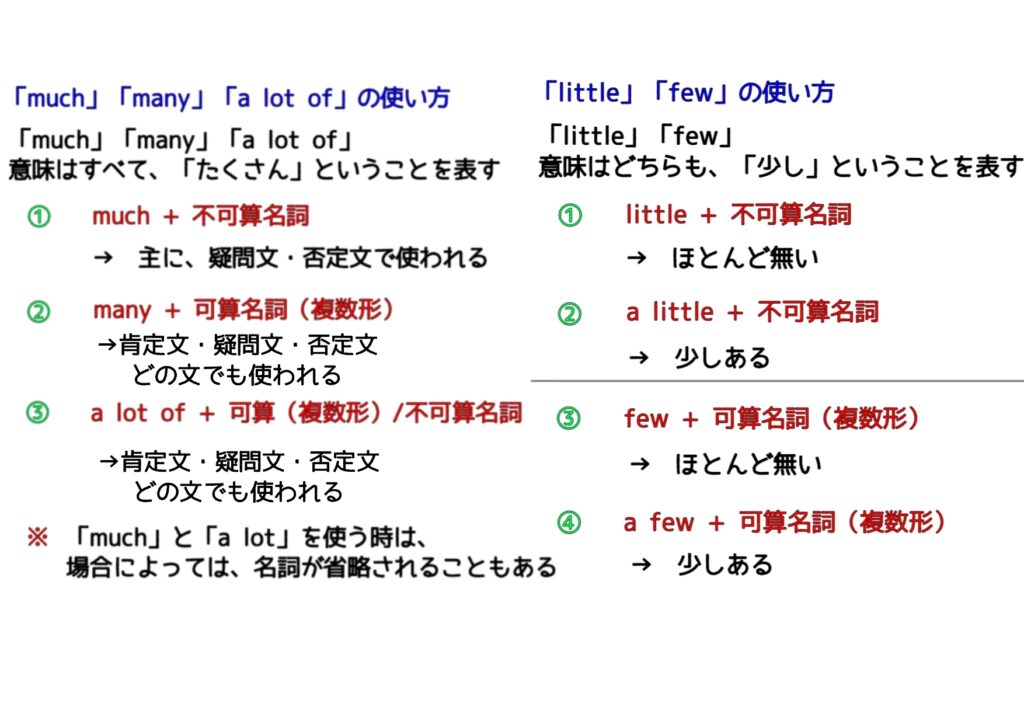第77回:程度・相手の注意を引くための副詞の使い方

「even」は、会話でもよく使われる表現です。
どのように使われているのかを確認してみましょう。
Q. この記事で、一番大事なことって何?
A. 大事なことを、1枚の画像にまとめました。

いちいちノートにまとめるのが面倒だという方、また、
ノートにまとめることが苦手だという方は、ご活用ください。

[広告]
確かな英語力は、日々の継続から。
その継続を後押しする、第二言語習得理論に基づいた
オンライン英語学習プログラムがあります。
英語を使う人のための、確実なスキルアップが望める
7日間の無料体験はこちらから!

副詞の位置によって変わる意味
程度副詞は、形容詞、動詞、または他の副詞の前に置かれて、何かの程度やレベルに関する情報を与えるために使用されます。
- They’re extremely happy(彼らは非常に幸せです)。
- I really hate coffee(私は本当にコーヒーが嫌いです)。
- He almost always arrived late(彼はほとんどいつも遅れて到着した)。
ほとんど、大部分、本当に、実質的になど、一部の程度副詞は通常、主要な動詞の前に使用され、altogether、enormously、somewhat、tremendouslyなどの他の副詞は通常、主要な動詞の後に使用されます。程度副詞は前置位置にはほとんど使用されません。
注意を引くために使われる副詞は、私たちが話している内容の最も重要な部分に注意を引きます。特に、especially、even、mainly、mostly、particularly、specificallyなどの副詞は、私たちの言葉をより具体的にします。
- There is likely to be snow today, particularly in the north(今日は雪が降る可能性があります、特に北部では)。
また、alone、just、only、simply、solelyなどの他の注意を引くための副詞は、私たちの言葉を一つのことや一人に制限します。
- Many people offered to help me invest the money, but I only trusted Rick(多くの人が私を助けてくれると申し出ましたが、私はリックだけを信頼しました)。
- 「much」と「very much」
肯定文の正式な文脈で、muchはadmire、appreciate、enjoy、prefer、regretという動詞の前に使用され、私たちの感情を強調します。
- I much enjoyed having you stay with us(あなたが私たちと一緒に滞在してくれたことをとても楽しんだ)。
- Their music is much admired(彼らの音楽はとても称賛されています)。
muchは特にIやweの後に使用されます。ただし、このパターンは通常、疑問文では使用しません(例:Did you much enjoy…?ではなく)。
agree、doubt、fear、hope、like、wantの前にも、同様にvery muchを使用することができます。ただし、この最後のグループの動詞の前ではmuchは使用しません。
- I much prefer seeing films at the cinema than on DVD(私は映画を映画館で見る方がDVDよりもずっと好きです)。
- We very much agree with the decision(私たちはその決定に非常に同意します)。
また、過去分詞が受動態の一部である場合、muchまたはvery muchを使用することができます。
- The new by-pass was (very) much needed(新しいバイパスは非常に必要でした)。
過去分詞形容詞の前ではmuchは使用せず、very much を使います。また、現在分詞形容詞の前にはmuchまたはvery muchを使用しません。
- I was very much surprised by her news(彼女のニュースに非常に驚きました)。
- The hotel was (very) welcoming(ホテルはとても歓迎的でした)。
- 「very」と「too」
形容詞や他の副詞の前では、高い程度を意味する場合にはveryを使用し、十分以上や必要以上を意味する場合にはtooを使用します。
- The weather was very hot in Majorca-perfect for swimming(マヨルカで天気はとても暑かった-泳ぐには最適です)。
- It’s too hot to stay in this room-let’s find somewhere cooler(この部屋に滞在するにはあまりにも暑すぎます-涼しい場所を見つけましょう)。
否定文の場合、非公式な話し言葉の中で、appreciate、enjoy、like、look forward toなどの動詞の前に(not) tooを使用して、何かに対する否定的な感情を強調することができます。
- I didn’t (very) much enjoy the film(その映画は(非常に)あまり楽しめませんでした)。
- 「even」と「only」
evenとonlyは通常、文の中間位置に配置されますが、それらが主語を指す場合は通常、主語の前に配置されます。
- My mother has only brought some food(彼女は食べ物だけを持ってきました)。
- Only my mother has brought some food(私の母だけが食べ物を持ってきました)。
- Aya can even speak French(アヤはフランス語を話すことさえできる)。
- Even Aya can speak French(アヤですらフランス語を話すことができる)。
正確な副詞の位置を選ぶことは、文の意味を明確に伝える上で重要です。
具体例
Degree adverbs and focus adverbs:
- Degree adverbs:
- Examples: She’s extremely talented in playing the piano. (before adjective)
- Examples: He really enjoys playing soccer. (before verb)
- Examples: They almost always go hiking on weekends. (before adverb)
- Note: Some degree adverbs are typically used before the main verb, while others are used after the main verb.
- Focus adverbs:
- Examples: The party was especially enjoyable because of the live music. (making it more specific)
- Examples: Only John can solve this complex math problem. (limiting it to one person)
- Note: Focus adverbs draw attention to specific aspects of what we are talking about.
- Much and very much:
- Examples: I much appreciate your help in completing this project. (affirmative sentence, before verb)
- Examples: They very much regretted their decision to cancel the concert. (affirmative sentence, before verb)
- Examples: I didn’t very much like the taste of that dish. (negative sentence, before verb)
- Very and too:
- Examples: The movie was very exciting, keeping the audience on the edge of their seats. (to a high degree)
- Examples: The suitcase was too heavy for me to lift. (more than enough or more than needed)
- Even and only:
- Examples: Only Lisa can solve this difficult puzzle. (referring to the subject)
- Examples: Even the experts were surprised by the results. (in addition to everything else)
[広告]
TOEICのスコアを上げたいけれど、
まとまった勉強時間が取れなくて困っている…
なら、細かいスキマの時間を使いながら、
少しずつスキルを積み重ねてみてはどうでしょう。
スマホ1つでスコアアップが出来る、
オンライン講座のリンクはこちらから。

Q. この文法はどうやって使うのでしょうか?
A. 今回の文法を活用した会話文を見てみましょう。

How did you find the movie last night?
(昨夜の映画、どうだった?)

Well, I didn’t very much enjoy it. The plot was quite weak, and the acting was subpar.
(うーん、あまり楽しめなかったな。ストーリーがかなり弱くて、演技もイマイチだったんだ。)

Oh, really? I thought it was quite good. I very much liked the performances, especially by the lead actor.
(え、本当?私はけっこう良かったと思ったよ。特に主役の俳優の演技がとても気に入ったんだ。)

Well, we have different tastes, I suppose. The film just didn’t appeal to me.
(まあ、好みは人それぞれだからね。私にはその映画は響かなかったんだ。)

That’s understandable. Everyone has their own preferences.
(それは理解できるよ。みんな好みが違うものだからね。)
[広告]
ロゼッタストーン・ラーニングセンターで、最先端の教育制度を活用して英語を学びませんか?私たちは個々の学習ペースに合わせてeラーニングと対面教育を組み合わせ、柔軟な学習環境を提供しています。自宅でのeラーニングと対面教育のメリットを最大限に活かし、あなたの英語学習をサポートします。最新のテクノロジーと個別の指導が組み合わさった当センターで、自由な学習スタイルを体験してみませんか?英語学習を楽しく効果的に進めるための環境がここにあります。新たな一歩を踏み出して、新しい英語学習の旅に参加しましょう!

Q. この記事の要点は?
A. 程度を表す副詞・相手の注意を引く副詞について確認しました。
Degree adverbs and focus adverbs:
- Degree adverbs:
- Used before adjectives, verbs, or other adverbs to indicate the extent or level of something.
- Can be placed before the main verb (e.g., almost, largely, really, virtually) or after the main verb (e.g., altogether, enormously, somewhat, tremendously).
- Rarely used in front position.
- Focus adverbs:
- Draw attention to specific aspects or limit the scope of what is being said.
- Some make the statement more specific (e.g., especially, even, mainly, mostly, particularly, specifically).
- Others limit the statement to one thing or person (e.g., alone, just, only, simply, solely).
- Use of “much” and “very much”:
- “Much” can be used as a degree adverb before verbs like admire, appreciate, enjoy, prefer, and regret to emphasize feelings.
- “Very much” can be used before the same verbs as “much” and also before verbs like agree, doubt, fear, hope, like, and want.
- “Much” is particularly used after “I” and “we” in formal affirmative sentences.
- “Very much” is also used before past participles in passive constructions, but not before present participles.
- Use of “very” and “too”:
- “Very” indicates a high degree or intensity, while “too” suggests excess or an undesirable level.
- “Very” is used before adjectives or adverbs to convey a high degree.
- “Too” is used before adjectives or adverbs to imply more than enough or more than desired.
- In negative sentences, “not too” can be used to mean “not very.”
- Use of “even” and “only”:
- “Even” and “only” usually go in mid position but can come before the subject if referring to it.
- “Even” emphasizes an unexpected or surprising addition to what is being said.
- “Only” implies exclusivity or singularity.
Note: There may be exceptions and variations depending on specific sentence structures and contexts.
英会話を始めてみたいけれど、どのサービスが良いか分からない…
そんな方は、まず、この記事で3つのサービスを比べてみてはいかがでしょうか?
英語力を効率良く伸ばすことができるサービス3選です。

次回の文法解説は?
自分の感想や観点を伝えるための副詞
この記事を作る際に参考にした文法の解説書になります。
すべて英語で書かれていますが、練習問題が付いてます。
イギリス英語なので、スペル等の表記が異なる部分もありますが、
「使い方を練習したい」「繰り返し問題を解きたい」
という方は、使ってみても良いかもしれません。

関連記事一覧
他の文法解説記事を検索できます。






-320x180.jpg)





コメント